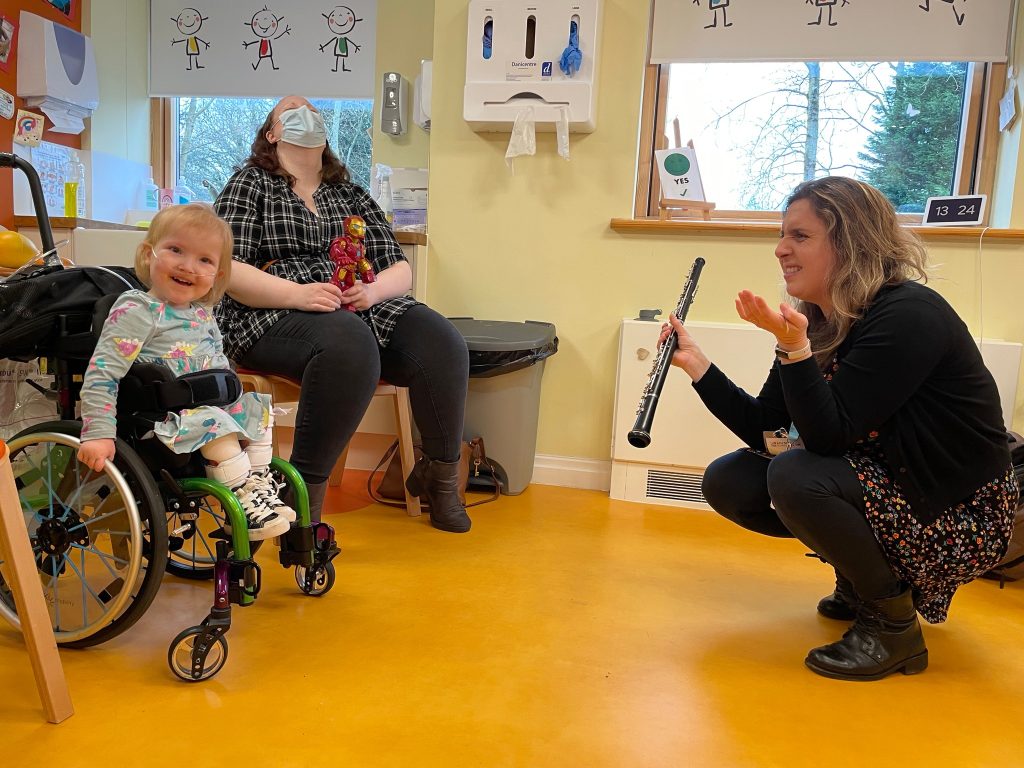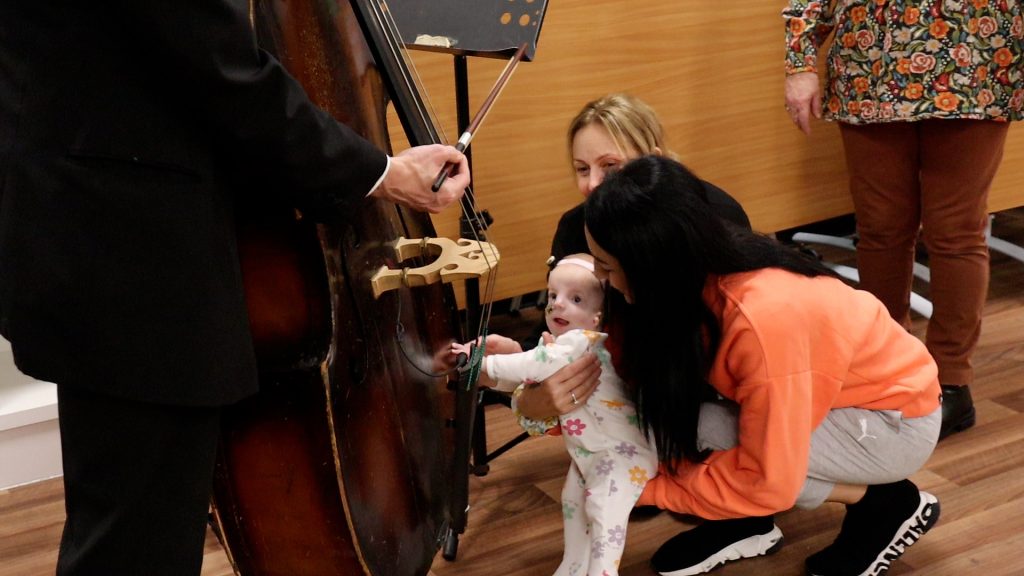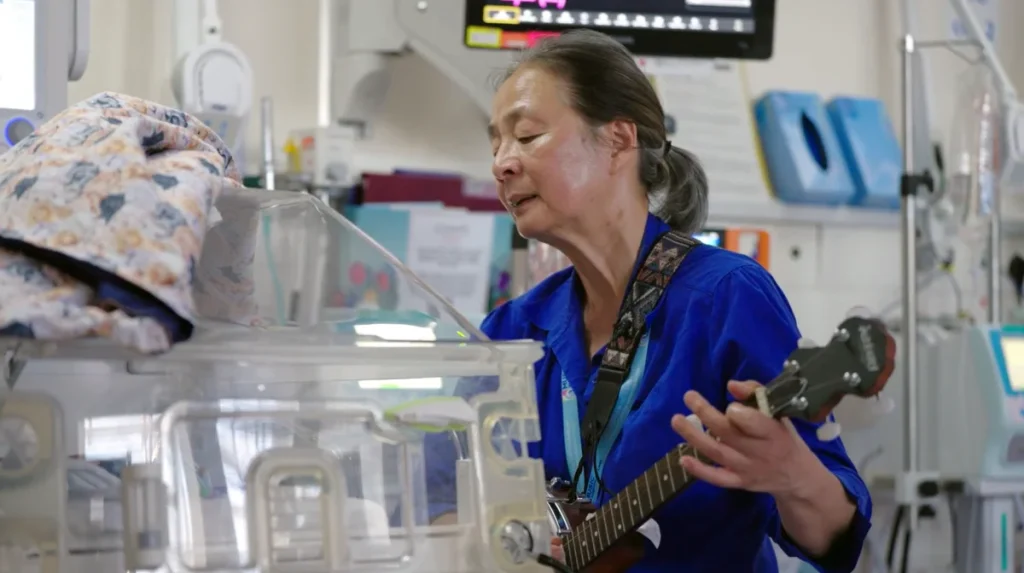Children and young people
In the face of serious illness, children and young people often find themselves isolated and overwhelmed. For a child with a serious illness, their world can shrink to the confines of hospital rooms and care environments, where comfort and connection become precious.
Our musicians share specially-created live music experiences that bring smiles, laughter, and a sense of normalcy to seriously ill children in hospitals, hospices and in the community. This could be gentle songs and melodies to soothe, or more interactive experiences where children sing, dance, tap along or play instruments.
Music is not just a distraction; it’s a powerful tool that helps children cope with their treatment, connect with their caregivers, and experience moments of happiness despite their circumstances. This can give children and family members a way to connect and express themselves, and create positive feelings in difficult times.
The children and young people we support include those with life limiting conditions, physical disabilities, sensory impairments, mental health problems and complex needs.


Did you know?
Live music intervention in paediatric spaces helps children and families focus on something external to illness and makes the hospital environment less threatening.[1]
Young people’s connection with music makes it a great way to help them get involved in services and feel less distressed.[2]
Music has been found to improve relaxation and well-being for carers of children with cancer, decreasing their levels of anxiety and stress.[3]
Music based interventions can reduce the severity of symptoms such as depression and anxiety in young people.[4]
Find out more about Lullaby Hour, our award-winning live music programme that creates special moments and memories for families in hospital wards, neonatal units and hospices.

Make a donation
Please give today to help improve the health and wellbeing of children and young people through the healing power of live music.
Evelyn, whose teenage son, David, has cerebral palsy and has respite care at Robin House in Balloch, West Dunbartonshire
“When someone plays music that he likes, I think David gets that the person has an interest in him. They care about him. It’s just a fantastic way for David to engage with something that he loves. I see the benefit it has for David and I would hate to think there’s anyone out there who can’t access it. It would be such a shame.”
St Mary’s Hospital, Paddington
“Nurses were astonished to see the heart rate of a child attached to a heart monitor return to normal as she listened to ‘Twinkle, Twinkle Little Star’ sung at her bedside.”
Victoria Hospital, Kirkcaldy
“Their parents seem to relax, even if only for a few minutes, while the music is playing. There is a definite reduction in anxiety levels for every age.”